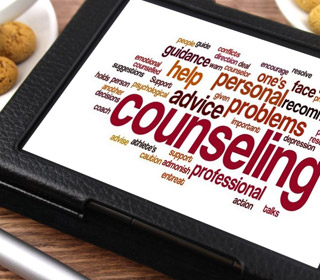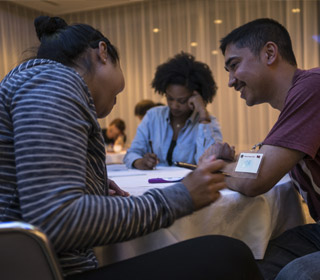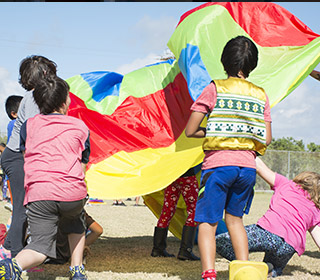Counseling Explained

Individual Counseling
Clients work one-on-one with a graduate-student counselor to identify and explore issues of concern. In this safe, supportive environment, they work as a team to set goals and resolve issues. Counseling faculty and professionals provide supervision and feedback. In these sessions, counselor and client can focus solely on the individual’s specific needs, enabling them to explore problems in depth to bring about insights and achieve resolutions. The need for counseling doesn’t necessarily mean someone is experiencing mental health issues. In some cases, people seek counseling to help them work through life transitions, such as family or career changes, when an objective ear can be helpful in making plans or responding to change.

Couple/Relationship and Family Counseling
Couples or families may work with a graduate-student counselor to nurture change and development. This form of counseling addresses the behaviors of all family members and the way these behaviors affect individuals as well as relationships between family members and the family as a whole.
Some areas covered in couple and family counseling include:
- Child/adolescent behavior problems
- Communication issues
- Family conflict
- Marital/relationship difficulties
- Parenting concerns

Group therapy
Groups of four to 12 individuals, one or two graduate-student counselors and/or faculty supervisors gather to explore issues and practice relationship skills. Members can learn from the experiences of others, offer feedback and gain insights into how others perceive them. Those who experience a mental illness or behavioral problem often feel isolated or alone. Through group counseling, individuals with similar symptoms can form a peer group that provides emotional support and, in a safe forum, practice new behaviors.

Play Therapy
This form of therapy is used primarily to assist children ages 3 to 12 explore their lives and freely express repressed thoughts and emotions through play. Therapeutic play typically takes place in a safe, comfortable playroom where few limits or rules are imposed. This encourages free expression and allows the therapist to observe the child’s choices and play style with the goal of helping them learn to express themselves in healthier ways, become more respectful and empathetic and discover more positive ways to solve problems.

Consultation
Consultation with a graduate-student counselor can help a parent, partner or other family member develop skills to help a significant other change behaviors. Often used in schools to help family and teachers support needed changes in a student/client, consultation focuses on creating plans, learning new parenting or relationship skills, or sustaining changes being made elsewhere in an individual’s life. This is especially useful for children or adolescents in transition or who need family support to supplement services and interventions in school.


